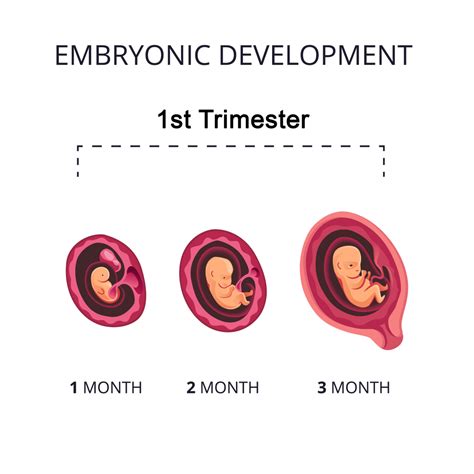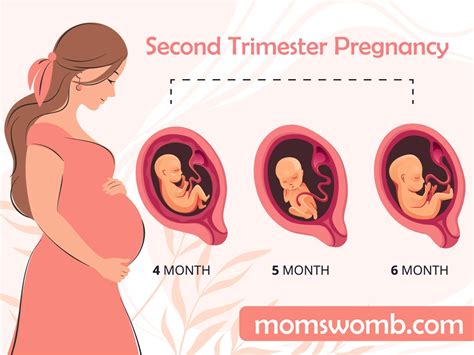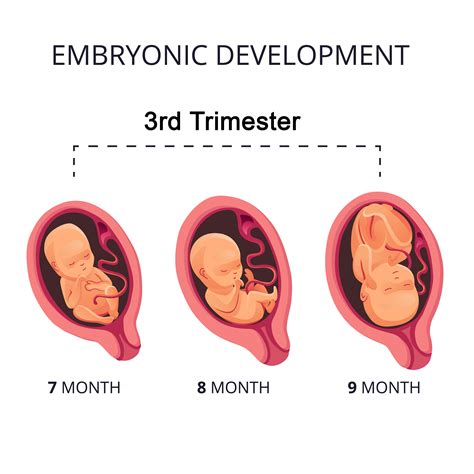Intro
Navigate pregnancy with our 40 Weeks Pregnancy Guide, covering prenatal care, trimester milestones, and childbirth preparation, ensuring a healthy journey for mom and baby.
Pregnancy is a remarkable journey that brings significant changes to a woman's body, emotions, and life. As the pregnancy progresses, it's essential to stay informed about the development of the baby, the mother's health, and the preparations needed for childbirth. A 40 weeks pregnancy guide provides valuable insights and practical advice for expectant mothers, helping them navigate this critical period with confidence. Understanding the various stages of pregnancy, from conception to birth, is crucial for a healthy and successful outcome.
The journey of pregnancy is divided into three trimesters, each with its unique characteristics and milestones. The first trimester, spanning from week 1 to week 12, is a period of significant fetal development, where the baby's major organs and body systems begin to form. The second trimester, from week 13 to week 26, is often referred to as the "golden period" of pregnancy, as the morning sickness subsides, and the belly starts to show. The third trimester, from week 27 to week 40, is the final stretch, where the baby grows rapidly, and the mother prepares for labor and motherhood.
Pregnancy is a time of immense physical and emotional change, and staying informed can help alleviate anxiety and uncertainty. A comprehensive guide to the 40 weeks of pregnancy offers expectant mothers a roadmap to navigate the challenges and joys of this journey. From understanding fetal development and maternal health to preparing for childbirth and parenthood, a well-informed approach can make a significant difference in the overall pregnancy experience. Whether it's managing symptoms, making lifestyle adjustments, or planning for the future, knowledge is power, and a detailed guide can provide the necessary tools and insights for a successful and fulfilling pregnancy.
First Trimester: Weeks 1-12

Weeks 1-4: Conception and Implantation
The journey of pregnancy begins with conception, where a sperm fertilizes an egg, resulting in the formation of a zygote. The zygote then travels down the fallopian tube, where it undergoes several cell divisions, eventually forming a blastocyst. The blastocyst then implants itself into the uterine lining, marking the beginning of pregnancy. During this period, the mother may not even realize she is pregnant, as the symptoms are often mild and similar to those experienced during a regular menstrual cycle.Weeks 5-8: Embryogenesis
The period between weeks 5-8 is critical for fetal development, as the baby's major organs and body systems begin to form. The heart starts to beat, the lungs begin to develop, and the digestive system starts to take shape. The mother may start to experience morning sickness, fatigue, and mood swings, as her body adjusts to the hormonal changes of pregnancy. It's essential to maintain a healthy lifestyle, including a balanced diet, regular exercise, and adequate rest, to support fetal development and maternal health.Second Trimester: Weeks 13-26

Weeks 13-16: Fetal Development
The period between weeks 13-16 is significant for fetal development, as the baby's skin, hair, and nails start to form. The mother may start to feel the baby's movements, such as kicking and rolling, and may experience a range of emotions, from excitement to anxiety. It's essential to maintain a healthy lifestyle, including a balanced diet, regular exercise, and adequate rest, to support fetal development and maternal health. Prenatal check-ups and screenings can help identify any potential issues and ensure the best possible outcome for the baby.Weeks 17-20: Maternal Health
The period between weeks 17-20 is critical for maternal health, as the mother's body undergoes significant changes to support the growing baby. The mother may experience a range of symptoms, including back pain, pelvic pressure, and breast tenderness, as her body prepares for childbirth. Understanding the importance of prenatal care, nutrition, and lifestyle habits can help expectant mothers maintain optimal health and well-being during this period. Regular prenatal check-ups, a balanced diet, and adequate rest can help alleviate symptoms and ensure a healthy pregnancy.Third Trimester: Weeks 27-40

Weeks 27-30: Fetal Development
The period between weeks 27-30 is significant for fetal development, as the baby's lungs, brain, and nervous system continue to mature. The mother may start to feel the baby's movements more strongly, and may experience a range of emotions, from excitement to anxiety. It's essential to maintain a healthy lifestyle, including a balanced diet, regular exercise, and adequate rest, to support fetal development and maternal health. Prenatal check-ups and screenings can help identify any potential issues and ensure the best possible outcome for the baby.Weeks 31-34: Maternal Health
The period between weeks 31-34 is critical for maternal health, as the mother's body undergoes significant changes to support the growing baby. The mother may experience a range of symptoms, including back pain, pelvic pressure, and breast tenderness, as her body prepares for childbirth. Understanding the importance of prenatal care, nutrition, and lifestyle habits can help expectant mothers maintain optimal health and well-being during this period. Regular prenatal check-ups, a balanced diet, and adequate rest can help alleviate symptoms and ensure a healthy pregnancy.Preparation for Childbirth

Creating a Birth Plan
A birth plan is a document that outlines the expectant mother's preferences for labor, delivery, and postpartum care. It should include information about pain management, labor positioning, and newborn care. Creating a birth plan can help expectant mothers communicate their needs and preferences to their healthcare provider and ensure a positive birth experience.Attending Prenatal Classes
Prenatal classes can provide expectant mothers with valuable information and skills to prepare for childbirth and parenthood. These classes cover topics such as labor and delivery, breastfeeding, and newborn care, and can help expectant mothers feel more confident and prepared for the challenges of motherhood.What are the signs of labor?
+The signs of labor include contractions, back pain, pelvic pressure, and a bloody show. As labor progresses, the contractions become more frequent and intense, and the cervix begins to dilate.
How can I manage pain during labor?
+There are several options for managing pain during labor, including breathing techniques, massage, hydrotherapy, and medication. It's essential to discuss these options with your healthcare provider and create a pain management plan that works for you.
What are the benefits of breastfeeding?
+Breastfeeding provides numerous benefits for both the mother and the baby, including nutrition, bonding, and immune system development. It's essential to learn about proper breastfeeding techniques and seek support from a lactation consultant if needed.
In conclusion, a 40 weeks pregnancy guide provides valuable insights and practical advice for expectant mothers, helping them navigate the challenges and joys of pregnancy with confidence. By understanding the milestones of fetal development, maternal health, and preparation for childbirth, expectant mothers can ensure a healthy and successful outcome for themselves and their baby. We invite you to share your thoughts, experiences, and questions about pregnancy and childbirth in the comments below. Your input can help create a supportive community for expectant mothers and provide valuable insights for those navigating this remarkable journey.
